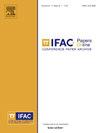Cost-Effective Routing of a Single Heavy-Duty Battery Electric Truck
Q3 Engineering
引用次数: 0
Abstract
The electrification of commercial heavy-duty long-haul transport to battery electric vehicles (BEVs) is projected to be the dominant technology for future transport, but it is limited by short range and long charging time. This study develops a method to optimize transport with a single BEV to be cost-effective. It formulates an optimal plan for routing, charging, speed control, and resting periods to minimize the economic cost of operation. The plan considers constraints such as customer demand, road and charging networks, vehicle limitations, time windows, and Hours of Service regulations. It is shown that the optimal plan frequently operate near empty battery making detailed energy modeling critical, and that the strategy varies significantly depending on constraints at the final destination. The vehicle can be operated to save costs, through depot charging and energy efficient speed control, or increase its utilization, through fast charging. It is proposed that for BEVs, fleet coordination will benefit from close interaction with the day-to-day operation of single vehicles.
单辆重型电池电动卡车的成本效益路线
商用重型长途运输电气化为纯电动汽车(BEVs)预计将成为未来交通运输的主导技术,但它受到里程短和充电时间长的限制。本研究开发了一种优化单一纯电动汽车运输的方法,使其具有成本效益。它对路径、充电、速度控制和休息时间进行优化规划,使运行的经济成本最小化。该计划考虑了客户需求、道路和充电网络、车辆限制、时间窗口和服务时间规定等限制因素。结果表明,最优方案经常运行在电池接近空的情况下,这使得详细的能量建模变得至关重要,并且该策略根据最终目的地的约束条件变化很大。车辆运行可以通过车场充电和节能速度控制来节约成本,或者通过快速充电来提高车辆利用率。对于纯电动汽车,车队协调将受益于与单个车辆日常运行的密切互动。
本文章由计算机程序翻译,如有差异,请以英文原文为准。
求助全文
约1分钟内获得全文
求助全文
来源期刊

IFAC-PapersOnLine
Engineering-Control and Systems Engineering
CiteScore
1.70
自引率
0.00%
发文量
1122
期刊介绍:
All papers from IFAC meetings are published, in partnership with Elsevier, the IFAC Publisher, in theIFAC-PapersOnLine proceedings series hosted at the ScienceDirect web service. This series includes papers previously published in the IFAC website.The main features of the IFAC-PapersOnLine series are: -Online archive including papers from IFAC Symposia, Congresses, Conferences, and most Workshops. -All papers accepted at the meeting are published in PDF format - searchable and citable. -All papers published on the web site can be cited using the IFAC PapersOnLine ISSN and the individual paper DOI (Digital Object Identifier). The site is Open Access in nature - no charge is made to individuals for reading or downloading. Copyright of all papers belongs to IFAC and must be referenced if derivative journal papers are produced from the conference papers. All papers published in IFAC-PapersOnLine have undergone a peer review selection process according to the IFAC rules.
 求助内容:
求助内容: 应助结果提醒方式:
应助结果提醒方式:


